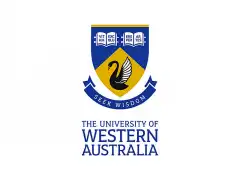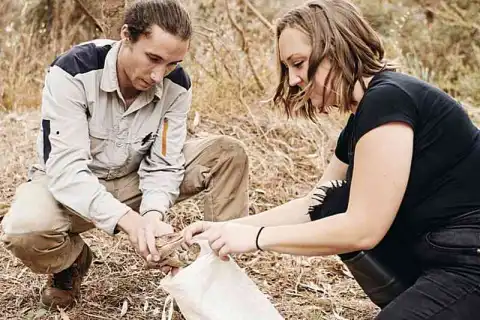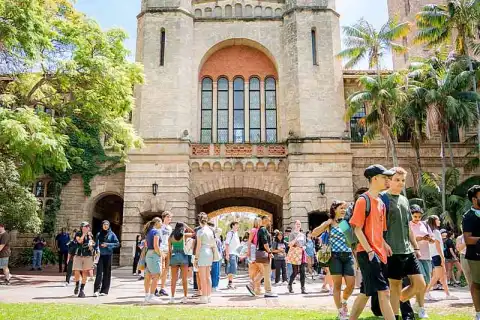Bachelor of Science - Environmental Science
- 3 years
- Duration
- 48,900 AUD/year
- Price
- Rolling admission
- Start
- Rolling admission
- Deadline
- Bachelor
- Degree
- Campus
- Format
- Perth / Australia
- Location
Program description
Earth and biological sciences are both covered by the Environmental Science degree. Given the diversity and complexity of environmental problems, it is imperative that we employ an interdisciplinary strategy to find effective solutions. In order to find workable answers to these issues, you will hone your skills in scientific modeling. In their work, environmental scientists address a wide range of topics, including but not limited to: global warming, carbon trading, emissions of greenhouse gases, management of water resources, salinity, flora and fauna, habitat loss, deforestation, energy and mineral depletion, pollution of the air and water, soil erosion, and contamination of groundwater. Up to three overnight field trips are planned. On these trips, students are expected to pay for their own meals and lodging for a maximum of four nights.
Program structure
Level 1
Core (take all units — 24 points):
- BIOL1131 Plant and Animal Biology (6)
- ENVT1104 Environmental Science and Technology (6)
- SCIE1104 Science, Society and Data Analysis (6)
- SCOM1101 Communicating Science (6)
Bridging
Bridging units must be successfully completed within the first 48 points of study. Students who have not achieved a scaled mark of at least 50 in Mathematics Methods ATAR or equivalent or higher are required to complete SCIE1500. Students who have not achieved a scaled mark of at least 50 in Mathematics Applications ATAR or equivalent or higher are required to complete MATH1720 and SCIE1500. Note: Students who have completed MATH1721, are not required to complete SCIE1500. Students who have not achieved a scaled mark of at least 50 in Chemistry ATAR or equivalent or higher are required to complete CHEM1003.
- CHEM1003 Introductory Chemistry (6)
- MATH1720 Mathematics Fundamentals (6)
- SCIE1500 Analytical Methods for Scientists (6)
Level 2
Core (take all units — 24 points):
- ENVT2220 The Climate System (6)
- ENVT2236 Soil Science (6)
- ENVT2251 Hydrology and Water Resource Management (6)
- GEOG2201 Geographic Information Systems (6)
Level 3
Core (take all units — 24 points):
- ENVT3338 Land Capability Assessment (6)
- ENVT3339 Land Rehabilitation (6)
- ENVT3361 Environmental Assessment (6)
- ENVT3362 Environmental Dynamics (6)
Price
- Tuition fee — 48,900 AUD per year.
A standard full time enrolment of 48 points per year equals 1 EFTSL (1 EFTSL is the Equivalent Full Time Study Load). If you enrol in more or less than 48 credit points per year, your yearly annual fee may be different. Tuition fees are reviewed annually and are subject to increase, as outlined in the UWA Acceptance Contract.
Requirements for applicants
To be considered for admission to this course an applicant must have
- achieved an ATAR of at least 75, or equivalent as recognised by UWA or
- an assured pathway offer or
- achieved a score of at least 100 in UWA's experienced based entry assessment or
- a place in a relevant UWA access program.
English competency
- Minimum overall IELTS score of 6.5, with no band less than 6.0.
For more information on requirements, please contact your Edumapple manager.
About the university

With a founding purpose to "advance the prosperity and welfare of communities," the University of the State was established in 1911 and opened its doors in 1913 to a small student body of 184. More than 28,000 students hailing from 115 different countries are now enrolled.
In the realms of education, research, and student success, UWA has been at the forefront of groundbreaking innovations since its inception. However, a university is more than just a place to get a degree and do research.
Throughout Western Australia, the country, and the globe, UWA has played an important role in advancing knowledge, culture, and the economy for over a century.
As the sole institution in Western Australia to be ranked in the top 100 globally, UWA has earned praise for its creative curricula, strong ties to local businesses, dedication to the student experience, and groundbreaking research.
Choosing to study at UWA means becoming a member of a community that has a reputation for leading good change, both locally and globally. You will also become part of a network of dedicated and innovative leaders who are determined to make a difference.





